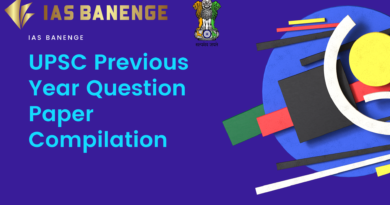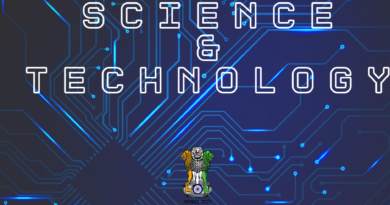Strategy for General Science for UPSC Civil services examination
Preparing for the General Science section of the UPSC Civil Services Examination can be a daunting task, as it requires a deep understanding of various scientific concepts and principles. However, with the right strategy and resources, you can develop a solid foundation in science and perform well on the exam. Here is a guide on how to prepare for the General Science section of the UPSC Civil Services Examination including sources and books.
Understand the Syllabus
The first step in preparing for the General Science section of the UPSC Civil Services Examination is to understand the syllabus. The syllabus for General Science covers various topics, such as Physics, Chemistry, Biology, and Environmental Science. It is important to have a clear understanding of the syllabus and the weightage of each topic to prepare a comprehensive study plan.
Develop a Study Plan
Once you have a clear understanding of the syllabus, the next step is to develop a study plan. The study plan should be tailored to your strengths and weaknesses and should cover all the topics in the syllabus. It should also include regular practice tests and revision sessions to track your progress and identify areas for improvement.
Choose the Right Books
Choosing the right books is crucial for preparing for the General Science section of the UPSC Civil Services Examination. Here are some recommended books for each topic:
Physics:
- NCERT Physics textbooks (Class 11 and 12)
- Concepts of Physics by HC Verma
- University Physics by Young and Freedman
Chemistry:
- NCERT Chemistry textbooks (Class 11 and 12)
- Organic Chemistry by Morrison and Boyd
- Inorganic Chemistry by JD Lee
Biology:
- NCERT Biology textbooks (Class 11 and 12)
- Biology by Campbell and Reece
- Human Anatomy and Physiology by Ross and Wilson
Environmental Science:
- NCERT Environmental Science textbook (Class 11 and 12)
- Environmental Studies by Benny Joseph
- Environmental Science by Shankar IAS Academy
- Supplement Your Reading with Online Resources
In addition to textbooks, it is important to supplement your reading with online resources. There are numerous online resources, such as blogs, YouTube videos, and educational websites, that can help you understand scientific concepts in a more interactive and engaging way. Here are some online resources for each topic:
Physics:
MIT OpenCourseWare
Physics Classroom
Chemistry:
Chemguide
Crash Course Chemistry
Biology:
Crash Course Biology
OpenStax Biology
Environmental Science:
National Geographic
World Wildlife Fund
United Nations Environment Programme
Practice Regularly
Regular practice is essential for mastering scientific concepts and principles. You should solve previous year question papers, take mock tests, and participate in online quizzes to test your knowledge and identify areas for improvement. This will help you to develop a deeper understanding of the subject and perform well on the exam.
Stay Up-to-date with Current Affairs
The General Science section of the UPSC Civil Services Examination includes questions related to current affairs in science and technology. Therefore, it is important to stay up-to-date with the latest developments in the field. You should read science magazines, newspapers, and online resources to stay informed about the latest scientific discoveries, breakthroughs, and trends.
Attend Science Conferences and Workshops
Attending science conferences and workshops can also help you to develop a deeper understanding of scientific concepts and principles. These events provide an opportunity to interact with scientists, researchers, and experts in the field, and learn about the latest research and developments. This can also help you to stay up-to-date with the latest trends and technologies in science.




